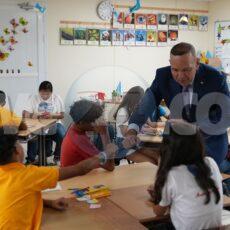

| The document sets out the challenges of prioritizing education in pandemic response plans during 2021 as well as maintaining and/or increasing education budgets.It also recommends ensuring learning continuity by adopting strategies that favour a return to in-person learning, as the public health situation permits, and which prioritize those students who have been excluded. |
| The year 2020 was one of uncertainty, dynamic scenarios and accelerated processes. Reflecting back on what happened last year allows us to better understand the events in question and should help us to make better decisions in the future. With this in mind, the Regional Bureau for Education in Latin America and the Caribbean (OREALC/UNESCO Santiago) has put the report “National education responses to COVID-19: the situation of Latin America and the Caribbean” at the disposal of the education sector.The objective of the document is to present an overview of the 2020 situation in Latin America and the Caribbean regarding the suspension of in-person learning caused by the COVID-19 pandemic, the countries’ responses to ensure pedagogical continuity and support for the education community, and the status of plans for reopening. “The document is the result of information that UNESCO, UNICEF and the World Bank have gathered by surveying Education Ministries and monitoring countries’ educational responses to the COVID-19 pandemic. The survey explored the measures that ministries have adopted and their plans for returning to in-person learning,” explained Alejandro Vera, regional programme specialist at the UNESCO bureau.The survey was applied during different phases to record changes in each country’s situation. Two consultation phases of the survey had been completed when this present report was drafted; the first was conducted between May and June 2020 and the second between July and October of the same year. A third phase, which was implemented between February and March 2021, also involved the participation of the Organisation for Economic Co-operation and Development (OECD) and its findings will be published shortly. |













